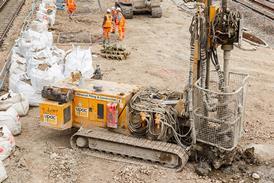That is why we have procedures and processes – not to enforce red tape but to provide confidence and accountability.
For a firm like Davis Langdon & Everest, the business structure and approach today is much more than just quantity surveying. The firm employs individuals from the design, engineering, legal, accounting, property management, risk management, research, planning, building surveying and business consultancy fields, and provides a far more integrated approach to the management of projects.
The crucial element is the ability of the project manager to be able to stand back from the project when things aren't quite going to plan, and to assess the problem and come up with an answer. But if the chosen solution is wrong commercially, who will carry the can when it comes in over budget and six months late? Having a commercial understanding is therefore crucial, and although I would submit that some project managers may be more creative than others, getting the job done successfully is surely the most important requirement.
Postscript
James Hamilton, Davis Langdon Project Management.
























No comments yet